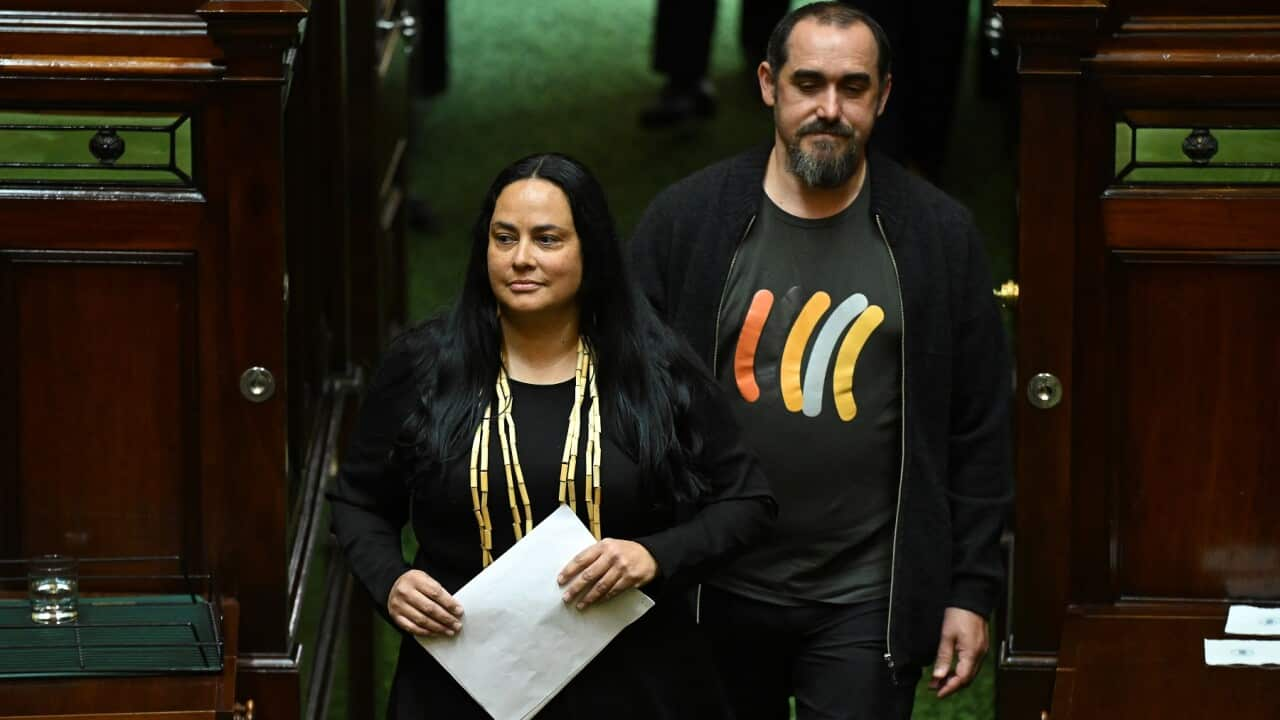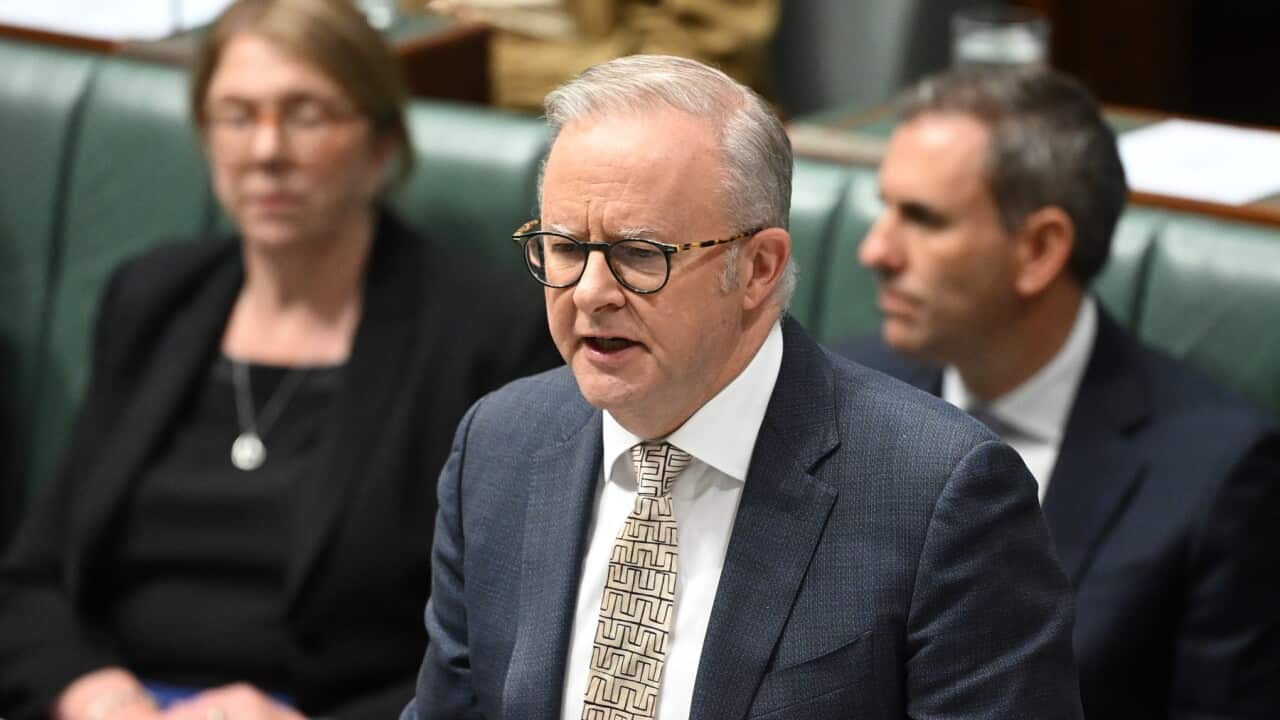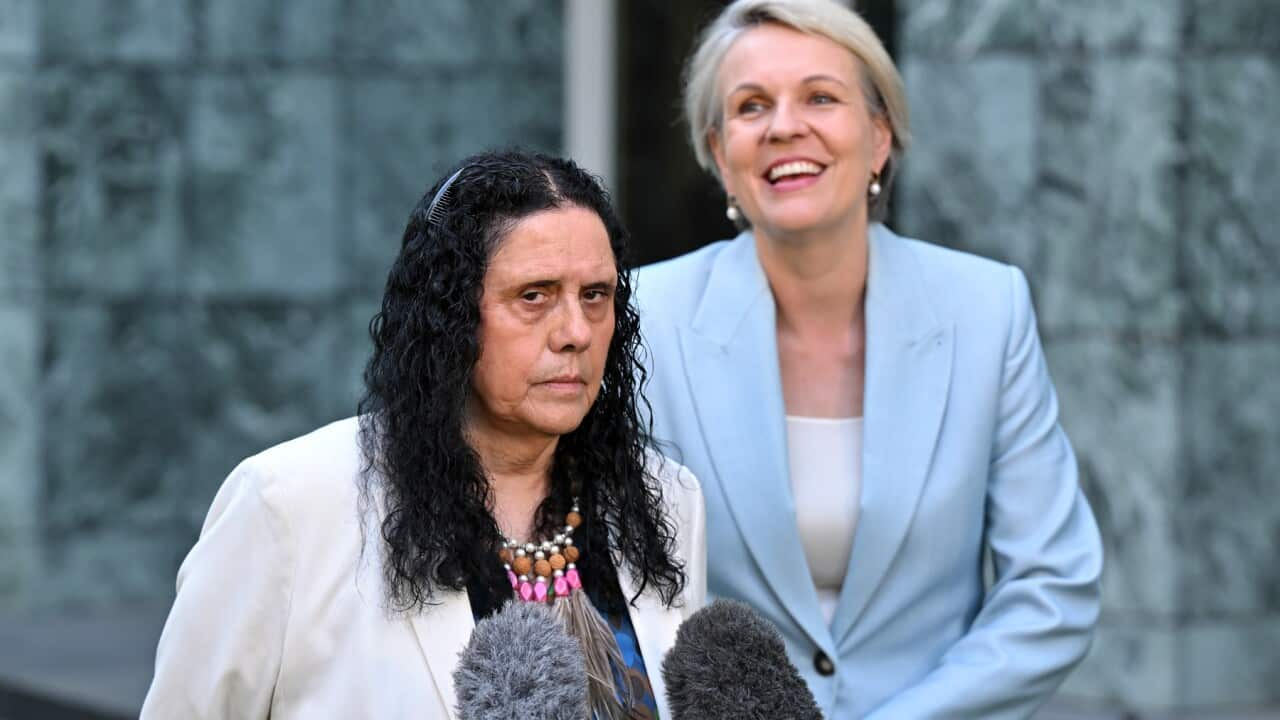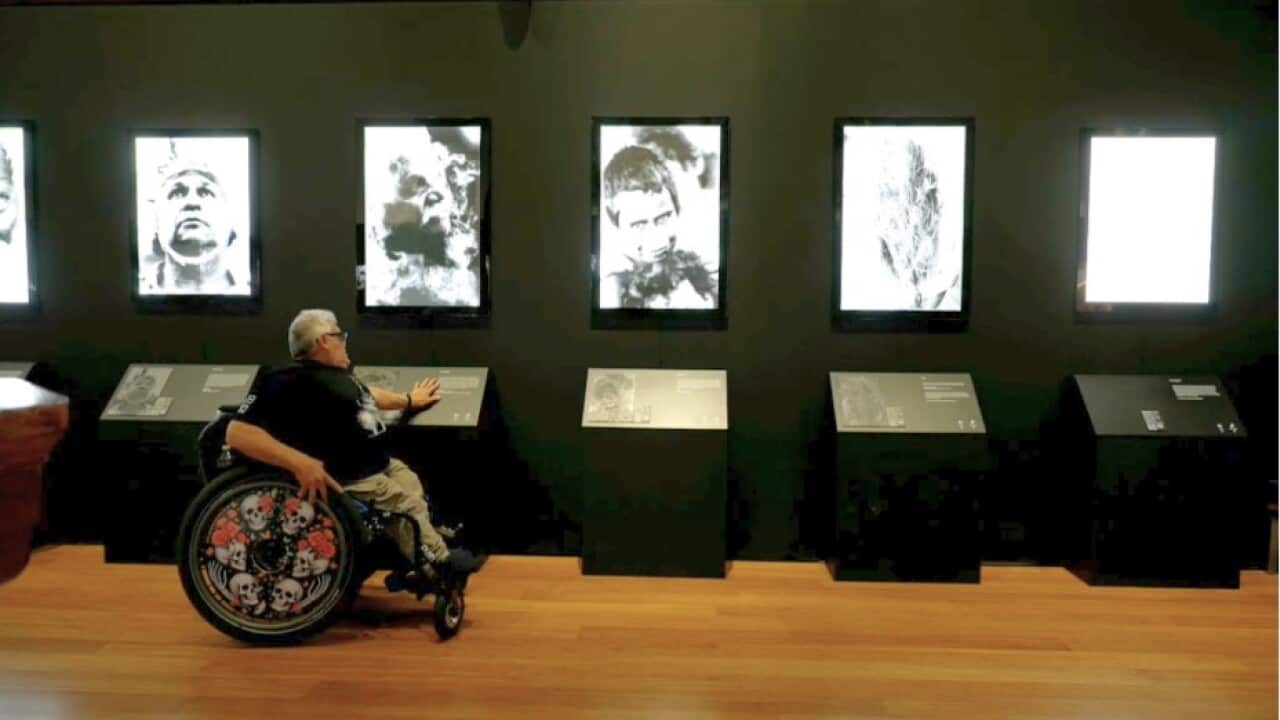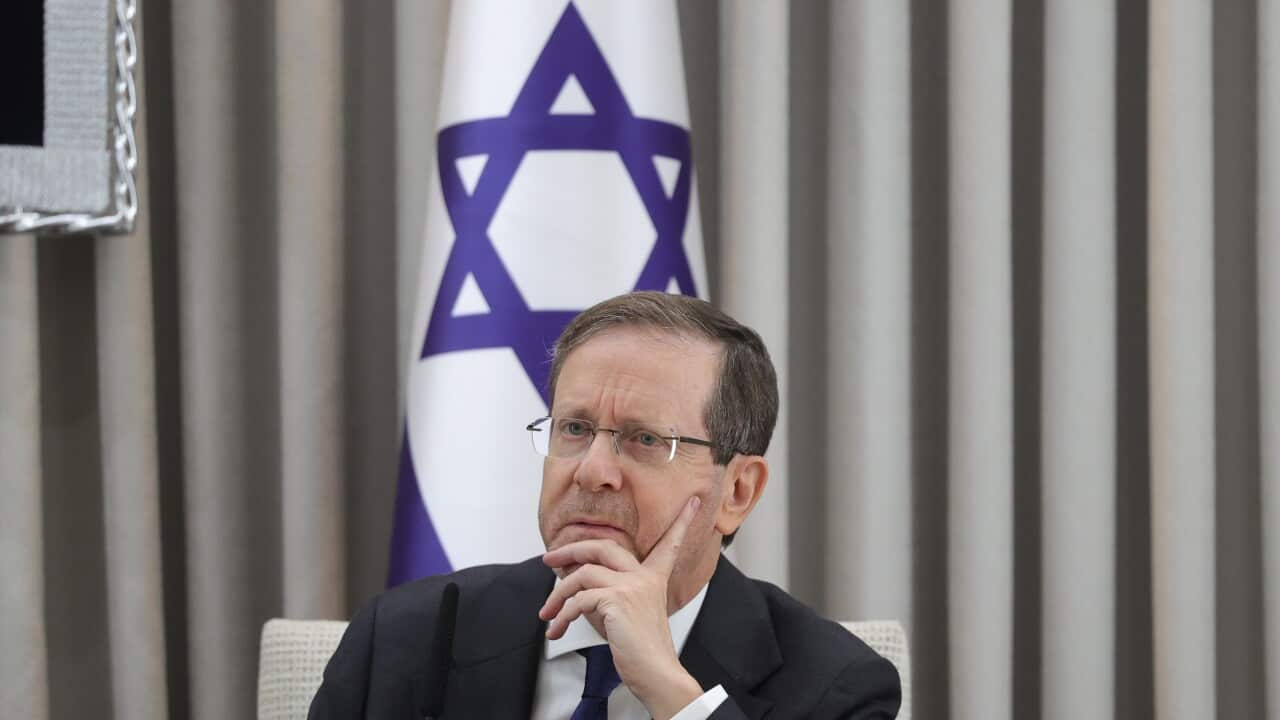Listen to Australian and world news, and follow trending topics with SBS News Podcasts.
TRANSCRIPT
Cheers rang through the Victorian Parliament on Thursday evening, after the state parliament made history by passing Australia's first ever treaty legislation.
Following a late night debate in the Upper House, the landmark treaty bill comes after almost a decade of activism and community efforts.
The treaty follows on from Victoria's Yoorrook Justice Commission, which shone light on the historic and ongoing injustices faced by Victoria's First Peoples.
Speaking to ABC News, Gunditjmara man and Co-Chair of the First People's Assembly Rueben Berg says the body will be guided by the findings of that commission.
"We've had the great fortune here in Victoria of having a four year long Yoorrook truth telling process, and that brought about more than 140 recommendations. So that's really the blueprint about what we want to be implementing here in Victoria. It's difficult to know where to start, and we'll be guided by our community. That's what's really powerful about this process, is that it's not just us deciding as the assembly we're guided by our community, and that's how we'll know we'll get better results."
Under the treaty bill, which is set to be signed in the coming weeks, the state's Indigenous representative body, Gellung Warl, will be made permanent and their powers expanded.
In the treaty bill and legislation, the body will be known as Gellung Warl, the Gunaikurnai word for "tip of the spear".
Once signed into law, the government will have to consult with the First People's Assembly on any laws or policies affecting Aboriginal Victorians.
Aunty Jill Gallagher is a Gunditjmara woman and the CEO of VACCHO, Victoria's peak body for Aboriginal Health and Wellbeing.
As the former Treaty Advancement Commissioner, she spoke to SBS about what this treaty means to her.
"To me it means hope for Aboriginal Victorians. To me, it's about a moment that will be remembered as a turning point in not only Victoria's history, but Australia's history."
For almost two decades, various levels of government have committed to closing the gap by reducing the disparities in areas like health, education and justice.
However, the latest Closing the Gap report found that only four of nineteen targets laid out in the policy are on track to be met.
Jill Gallagher says treaty is critical to closing the gap.
"So what's been missing from Closing the Gap is empowerment, having some say in what we need to do to close that gap. Having some say with coming up with the solutions that empowerment is what this treaty bill gives to our elected body. Victorian Aboriginal elected body gives them power to talk to parliaments, to parliament. That's important to emphasise not in parliament, but to parliament. And it also gives them the power to monitor why aren't we closing the gap? What needs to change?"
For more than 15 years, Closing the Gap in Aboriginal health outcomes has received bipartisan support from both Liberal and Labor Prime Ministers and Victorian Premiers.
Despite historical backing and wide support in Parliament, Victoria's Liberal opposition opposed the bill.
Shadow Minister for Public Transport of Victoria Sam Groth says the Victorian Liberal Party does not believe treaty is the best path forward.
"We've been very very clear when it comes to our position on treaty. We don't support treaty, we haven't supported treaty. We don't believe it's the best way to close the gap and deliver the best outcomes for Indigenous Victorians. That's why the Liberals and Nationals, within the first 100 days of coming to government, will introduce legislation to repeal treaty."
On the opposition, Jill Gallagher says it's disappointing to see powerful, well educated people, using the treaty for their own political gains.
"Don't listen to the rhetoric of the opposition because they're lies and they're untrue. And to me, I'm very disappointed that we have so much powerful people who would take the opportunity to use something so beautiful as what's just happened in here in Victoria, to use it as a political football and try and turn people, ordinary Victorians, against us."
